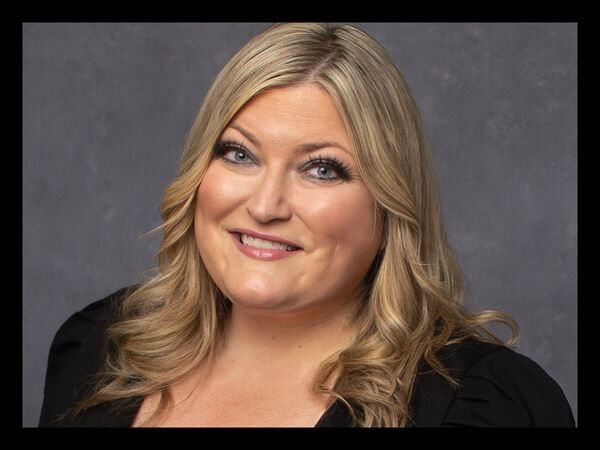US envoys visit Israel to bolster truce, and Gaza militants hand over a hostage's remains
News > Religion News

Audio By Carbonatix
5:17 AM on Monday, October 20
By SAM MEDNICK, SAMY MAGDY and WAFAA SHURAFA
TEL AVIV, Israel (AP) — Two of U.S. President Donald Trump’s envoys traveled to Israel on Monday to shore up the ceasefire in Gaza, a day after deadly violence gave the fragile deal its first major test.
The truce appeared on track as Israel received the remains of another hostage in Gaza, and Israel allowed aid deliveries to resume to the devastated territory. United Nations spokesperson Stephane Dujarric did not say how much aid was getting in.
Israel on Sunday had threatened to halt shipments of humanitarian aid, and its forces killed dozens of Palestinians in strikes across Gaza after accusing Hamas militants of killing two soldiers. Israel later said it resumed enforcing the ceasefire.
U.S. special envoy Steve Witkoff and the president’s son-in-law, Jared Kushner, met with Prime Minister Benjamin Netanyahu about developments in the region. U.S. Vice President JD Vance and the second lady, Usha Vance, are scheduled to visit Tuesday and meet with Netanyahu, the prime minister said in a speech.
Netanyahu also warned Hamas that any attacks against Israeli forces would be met with “a very heavy price.”
Asked about maintaining the Israel-Hamas ceasefire, Trump said the U.S. will give the situation a “little chance” in hopes that there will be less violence. He put the blame on Hamas and said the militant group must behave or face consequences.
“They have to be good, and if they’re not good they’ll be eradicated,” he said.
The U.S.-proposed truce aimed at ending two years of war took effect on Oct. 10.
On Sunday, Trump told reporters that Hamas had been "doing some shooting.” He also suggested that the violence might be the fault of “rebels” within the group.
Hamas security forces have returned to the streets in Gaza, clashing with armed groups and killing alleged gangsters in what the militant group says is an attempt to restore law and order in areas where Israeli troops have withdrawn.
On Sunday, Israel’s military said militants had fired at troops in areas of Rafah in southern Gaza that are Israeli-controlled according to agreed-upon ceasefire lines.
Retaliatory strikes by Israel killed 45 Palestinians, according to the territory's Health Ministry, which says a total of 80 people have been killed since the ceasefire took effect.
Hamas, which continued to accuse Israel of multiple ceasefire violations, said communication with its remaining units in Rafah had been cut off for months and “we are not responsible for any incidents occurring in those areas.”
The Israeli military said Monday it was using concrete barriers and painted poles to more clearly delineate the so-called yellow line in Gaza to where troops have withdrawn and several instances of violence have occurred.
Earlier in the day, Israel said one of its fighter jets struck and killed several people it said had crossed the yellow line in the southern Gaza city of Khan Younis, approached troops and “posed an imminent threat.” In two similar incidents Monday in a neighborhood of Gaza City, the military said it struck several people who crossed the line there and posed an “immediate threat” to its troops.
Under the terms of the ceasefire, Israel is still waiting for Hamas to turn over the remains of 15 dead hostages. Thirteen have been turned over.
The ceasefire's next stage is expected to focus on disarming Hamas, Israeli withdrawal from additional areas it controls in Gaza, and future governance of the devastated territory. The U.S. plan proposes the establishment of an internationally backed authority.
In an interview with CBS’ “60 Minutes” news program over the weekend, Kushner said the success or failure of the deal would depend on whether Israel and the international mechanism could create a viable alternative to Hamas.
“If they are successful, Hamas will fail, and Gaza will not be a threat to Israel in the future,” he said.
A Hamas delegation led by chief negotiator Khalil al-Hayya was in Cairo to follow up on the implementation of the ceasefire deal with mediators and other Palestinian groups.
Palestinians in Gaza fear the deal may fall apart.
Funeral services were held Monday for some of the dozens of people killed by Israeli strikes. Associated Press footage showed mourners lining up for prayers.
“There should be concerns as long as the matters have yet to be settled,” said Hossam Ahmed from the southern city of Khan Younis.
A major concern is how much aid Israel is letting into Gaza. To facilitate more aid, mediators are working to ensure the opening of the Rafah crossing between Egypt and Gaza, a senior Qatari official said Monday.
“The opening of the Rafah crossing remains essential to scaling up the delivery of life-saving humanitarian aid into Gaza,” Qatar’s Minister of State for International Cooperation Mariam bint Ali Al-Misnad told The Associated Press.
In their Oct. 7, 2023, attack on Israel that sparked the war, Hamas-led militants killed around 1,200 people, mostly civilians, and abducted 251 people as hostages.
The Israel-Hamas war has killed more than 68,000 Palestinians, according to Gaza’s Health Ministry, which does not distinguish between civilians and combatants in its count. The ministry maintains detailed casualty records that are seen as generally reliable by U.N. agencies and independent experts. Israel has disputed them without providing its own toll.
Thousands more people are missing, according to the Red Cross.
___
Magdy reported from Cairo and Shurafa from Deir al-Balah, Gaza Strip. Darlene Superville in Washington and Farnoush Amiri at the United Nations contributed.
___
Follow AP’s war coverage at https://apnews.com/hub/israel-hamas-war











